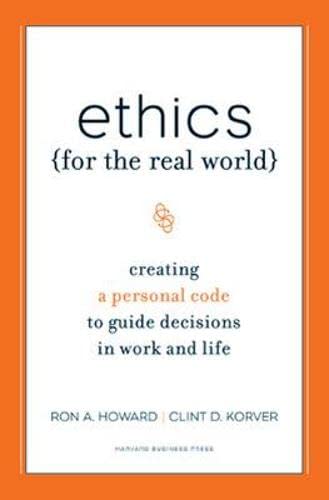
Ethics for the Real World
Creating a Personal Code to Guide Decisions in Work and Life
People often act reflexively when faced with an ethical challenge. The necessity to make a fast decision leaves little time to think clearly. We get distracted by what our colleagues and others expect from us, and we make snap decisions that we regret. While most agree that outright lying, stealing, and harming are wrong, they seem to disagree about smaller compromises. This book argues that it's better and more satisfying to choose instead of react, to understand distinctions instead of guess what is right for us, and to remain cognizant of the impact of ethical compromise on our effectiveness at work and our personal relationships. The chapters of this book offer lessons and practical tools to help readers: 1. Develop radar to identify the situations where we are forced to make ethical compromises; 2. Understand how to use solid ethical logic and principles to foster clear thinking; 3. Draft and refine a personal code of conduct, and make it practical for everyday use; 4. Go beyond ethical basics to using your personal code as a lever for making more consistent decisions and reducing stress in work and life. Many books about ethics discuss weighty and controversial issues that few of us deal with in daily life--abortion, euthanasia, capital punishment, animal rights. While these books are valuable, they are not so much tools for decision making as food for thought. This book, in contrast, focuses on one of ethics' most insidious problems: our inability to make clear and consistent choices in everyday life. The practical tools and techniques in this book help readers design a set of personal standards, based on sound ethical reasoning, for reducing everyday compromises.
Ethics for the Real World
Creating a Personal Code to Guide Decisions in Work and Life
